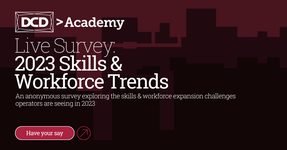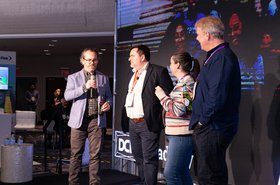The first thing we need to do is recognize that the problem is a labor shortage. Too much of the rhetoric around this issue focuses on the word ‘skills’ – whether that’s panels or webinars about the ‘skills shortage’ or data center companies complaining that the noticeable lack of skilled talent is harming their ability to scale and execute projects.
We’re all guilty of using these terms interchangeably, but it’s more than just unimportant nomenclature. Firstly, what most people mean when they say ‘skilled’ is actually ‘experienced.’ The war for skilled talent that companies are engaging in is just constant fighting over the same shrinking pool of professionals, while the demand on data center operators and builders is skyrocketing.
When you realize that people are using the term ‘skill’ synonymously with experience, you start to see how ridiculous the dialogue is, “There’s not enough experienced data center professionals, we need to find some more!”
What we’re often guilty of as we engage in this discourse is focusing on the symptom rather than the cause. Experienced and skilled talent doesn’t just appear, even those that fall into this category had to start out somewhere – the real issue we’re facing is a labor one.
Simply put, there are not enough people in the industry to cope with the demand on its infrastructure.
What can be done about it?
Collectively, the first thing we need to do is focus on people. Skills can be developed, and experience comes over time, but if we aren't hiring people from outside of the industry, then the talent crisis will turn into an operational one.
In 2021, Uptime reported that the industry needs to recruit 300,000 more people by 2025 – imagine what that number is now post AI boom!
The lack of formal education pathways is also an issue, both at the college/university and technical education level. That said, things are definitely getting better – there are now many great initiatives for young people and graduates where data center education is being fully funded by third parties, and the number of these initiatives is growing every year.
There’s also been a lot of success with focusing on other mission critical sectors where there’s transferable skills. We all know how well veterans do in this industry, and again the number of initiatives focused on hiring veterans also grows every year.
However, this won’t mean anything if companies aren’t looking at these profiles when hiring.
Guess what, it’s cheaper
Hiring outside the sector isn’t just good for the future of the industry, it’s good for the books.
Experienced talent doesn’t come cheap. The fight for battle-hardened staff leads to spiralling recruitment costs, made worse by less-than-ideal retention rates due to consistent talent poaching.
I’ve lost count of the number of clients who have come to us this year alone complaining about the lack of skilled talent, the costs of hiring them, and then suffering poor retention rates. This then leads to much bigger problems than high talent acquisition costs, as attrition can delay projects and affect a company’s position in the market.
We’ve seen a lot of success through onboarding and development plans from data center companies, that allow them to hire more junior-level or inexperienced staff, and then equip them with the knowledge and skills to forge careers in the sector.
This makes for both cheaper recruitment costs and better retention rates, because giving people their start in the industry and investing in their development leads to longer tenures at the company.
Averaging across all sectors, 56 percent of graduates remain employed with the same company after five years – this figure is even higher for apprentices at 61 percent. Compare that to the fact that the average turnover for NOC technicians is six to 12 months; in an industry where human errors account for the majority of outages, this is a big problem.
Final thoughts
The data center labor shortage is a complex issue. One of the things not addressed in this article that needs to be addressed is the visibility of the sector itself. Such an integral part of modern society shouldn’t have such a problem, but yet it still does. And that needs to be solved if we’re to create a sustainable talent pipeline for the industry’s future.
Despite the amount of moving parts, all we can do is focus on what we can control. At DCD>Academy, we will continue working with clients to show them the advantages of different hiring and training strategies, as well as continuing to work with non-profits like Infrastructure Masons to provide scholarships to those outside the industry.
If you’re a data center operator, planner, builder or supplier, next time you have a suitable job opening, think about interviewing someone outside the sector. You never know, they might surprise you.
More from DCD>Academy
-

Live Survey: 2023 Skills & Workforce Trends
An anonymous survey exploring the skills & workforce expansion challenges operators are seeing in 2023
-

Changing of the guard
Is TikTok the answer to the data center labor shortage?
-

DCD>Academy & iMasons partner on college student scholarship program in the US
iMasons Capstone Project prepares graduates for careers in data center design engineering


